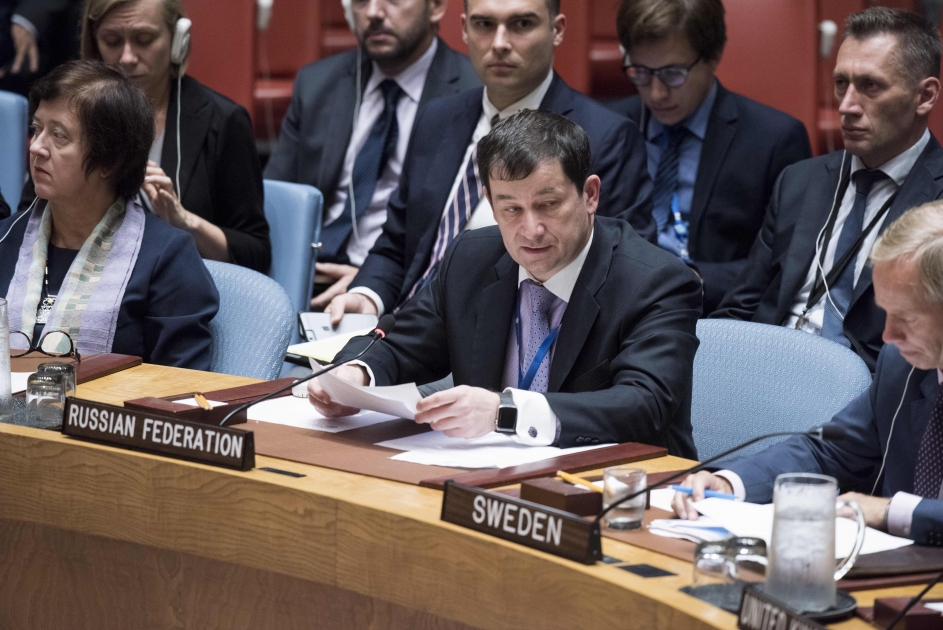Statement by Mr.Dmitry Polyanskiy, First Deputy Permanent Representative of the Russian Federation to the United Nations, at the Security Council after the vote on the UNSC resolution on Peacekeeping
The work on the draft text for resolution 2436 (2018) proposed by our American partners was not easy.
At one point, frankly, we were on the verge of radical decisions and a situation that would have deprived the Council of unity on an issue of major importance requiring a collective decision. We are pleased that patient efforts ultimately enabled us to include language that had Council members’ unanimous support. This was made possible thanks to the authors’ willingness not merely to hear but also to listen to the expectations and concerns of a broad range of States, particularly troop-contributing countries, that play a key role in United Nations peacekeeping. The Russian Federation therefore found it possible to support the resolution’s adoption.
The consultations on the text confirmed that where there is a will the Council is capable of finding a way to take decisions on issues, however complex, and we would be happy and ready to help to ensure that this constructive practice can be translated to other items on our agenda. Issues related to optimizing peacekeeping missions’ activities are extremely important and require the closest possible attention of all participants in peacekeeping operations.
We fully support the desire of all to strengthen Blue Helmets’ safety and make their work of implementing Council mandates more effective, but while the diagnosis is generally the same, the proposals as to which methods should be applied frequently differ. For example, we think that simplistic solutions, such as continually strengthening missions’ mandates, cannot guarantee sustained solutions.
However, these differences are not insuperable, and the work done on the resolution we adopted today shows that we definitely can and should seek common approaches that enable us to achieve the broadest possible consensus. For that reason, we believe that so-called general peacekeeping issues should be considered by the widest possible range of stakeholders, or our efforts will not be very effective. The General Assembly’s Special Committee on Peacekeeping Operations — which brings together the members of the Council, troop-contributing countries and host States, as well as ensuring close cooperation with the Secretariat — was established and operationalized in order to engage the largest possible number of States in this process for that purpose.
We would like to point out that the logic of collective effort is central the Secretary-General’s Action for Peacekeeping initiative. The principal parties implementing Council mandates, the troop-contributing countries, should therefore, like host States, not be left on the sidelines when key decisions are made about the parameters for peacekeeping operations.
We believe that if collective, consensus-based approaches prevail, as happened today, we can resolve United Nations peacekeeping problems, however difficult they are, thereby achieving the goals we all share and preserving and strengthening the authority and role of the United Nations in conflict resolution.
